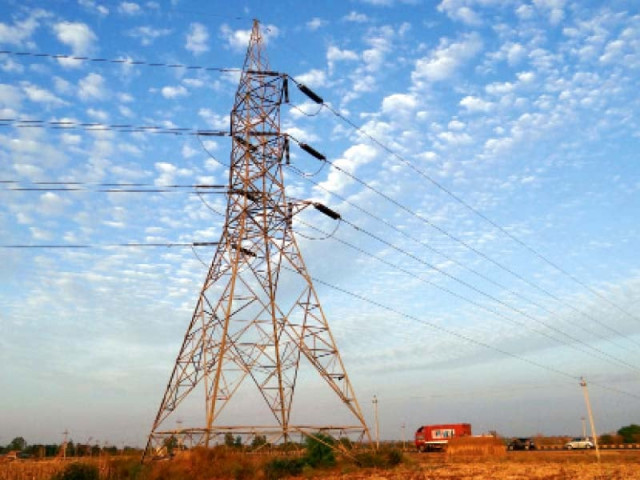PM agrees to increase power tariffs
Electricity rates could go up by 25% or Rs3.34 per unit

Prime Minister Imran Khan has finally given the go-ahead to increase electricity prices aimed at fulfilling a major condition of the International Monetary Fund (IMF) for the revival of $6 billion programme that remained suspended for the last 10 months.
The electricity prices could go up by 25% or Rs3.34 per unit on account of annual base tariff increase of the previous fiscal year, sources in the Ministry of Energy and Ministry of Finance told The Express Tribune.
The only decision that is pending is whether to increase the prices in one go or stagger it over the next two quarters, the sources added.
The premier gave the green signal during a meeting held at the Prime Minister’s House last Friday, they added.
Following the premier’s nod, the key economic team met on Monday and discussed various scenarios to increase the prices and address the flow of over Rs1.2 trillion circular debt – another condition of the IMF, the sources said.
The base tariff was Rs13.35 per unit, which has to be jacked up to Rs16.69 per unit – a surge of Rs3.34 per unit or 25% to meet the IMF condition, said a member of the cabinet on condition of anonymity.
“We are continuing work on completion of the review process. However, I cannot give specifics at this stage,” Kamran Afzal, Special Secretary Finance and spokesman of the Ministry of Finance said.
Afzal had been requested to comment whether the premier agreed to IMF’s demand to increase annual base tariff and did both IMF and Pakistan agree on new dates for the mission’s visit, subject to notification of tariffs and introduction of new finance bill.
Sources said that the IMF Mission may not arrive in Pakistan until the government notifies increase in electricity prices, amend the Nepra Act, impose additional taxes and approve amendments in the SBP Act.
The government was also considering introducing a new legislation to withdraw income tax exemptions availed by the corporate sector to raise around Rs200 billion in additional taxes as part of its efforts to revive the stalled IMF programme.
There was a consensus between the Pakistan and IMF authorities that a target of Rs4.963 trillion was not achievable.
In January this year, the IMF had placed the conditions of increasing electricity tariffs and bringing nearly Rs200 billion worth of mini-budget for taking Pakistan’s case to its board for the approval of third loan tranche of $450 million and second review of the economy for October-December 2019 period.
At that time, Prime Minister Imran Khan had not agreed to both the proposals and instead went for renegotiation of Power Purchase Agreements with the Independent Power Producers, which still remain inconclusive.
This led to the derailment of the programme and the IMF cancelled a board meeting scheduled to approve the third tranche.
Pakistan’s external financing risks are being elevated after Saudi Arabia withdrew its financial support and chances were that the United Arab Emirates (UAE) could also follow the suit.
The UAE initially promised to give $3 billion but disbursed $2 billion. It also did not provide $3 billon oil financing facility despite promising. The key reason was the premier’s decision to visit Qatar, which annoyed Dubai, the sources said.
They further noted that the Power Division working showed that the effective tariff was Rs13.54 per unit since December last year.
About Rs7.72 per unit proposed increases have not been passed on to the consumers on account of monthly fuel price adjustments and quarterly tariff adjustments, the sources added.
The circular debt has shot over Rs2.35 trillion, which is double the amount left behind by the PML-N government over two-and-a-half years ago. The IMF’s recipe is to increase the prices to control debt build-up but it has so far proven counterproductive.
The sources said that the government also discussed the issue of settling the flow of the circular debt through settlement of cash development loans amounting to Rs367 billion and clearing backlog of the Rs260 billion subsidies.
The Ministry of Finance has extended the loans to National Transmission and Dispatch Company, Pakistan Atomic Energy Commission and Water and Power Development Authority.
The remaining amount that cannot be settled against loans and book adjustments have to be paid from the budget, the sources said.
The IMF had demanded that the federal cabinet should approve the quarterly tariff adjustments along with increase in prices on account of annual tariff.
The federal cabinet on Tuesday approved to make adjustments in the quarterly tariffs by further extending previous quarters increases, indicating that PM had changed his previous position.
The previous quarterly adjustment for first quarter of 2019-20 had come to an end on November 30 and had now been replaced with a fresh equivalent increase for the next 10 months to recoup a discount previously provided to consumers.
In July this year, Prime Minister Imran Khan had also setup a Subsidies Cell under Dr Waqar Masood Khan to examine all types of hidden and explicit subsidies.
The assessment carried out by the Subsidies Cell indicated that there are subsidies amounting to Rs2 trillion annually which constitute 4.5% of the GDP and 58% of current budget.
The stock of unrecognised subsidies is Rs5.2 trillion as of June 2020, which is equal to 24% of the domestic debt and “pose actual and potential loss to the exchequer for lack of adequate returns or possible losses to be booked in not-too-distant future”, according to the Subsidies Cell.



















COMMENTS
Comments are moderated and generally will be posted if they are on-topic and not abusive.
For more information, please see our Comments FAQ